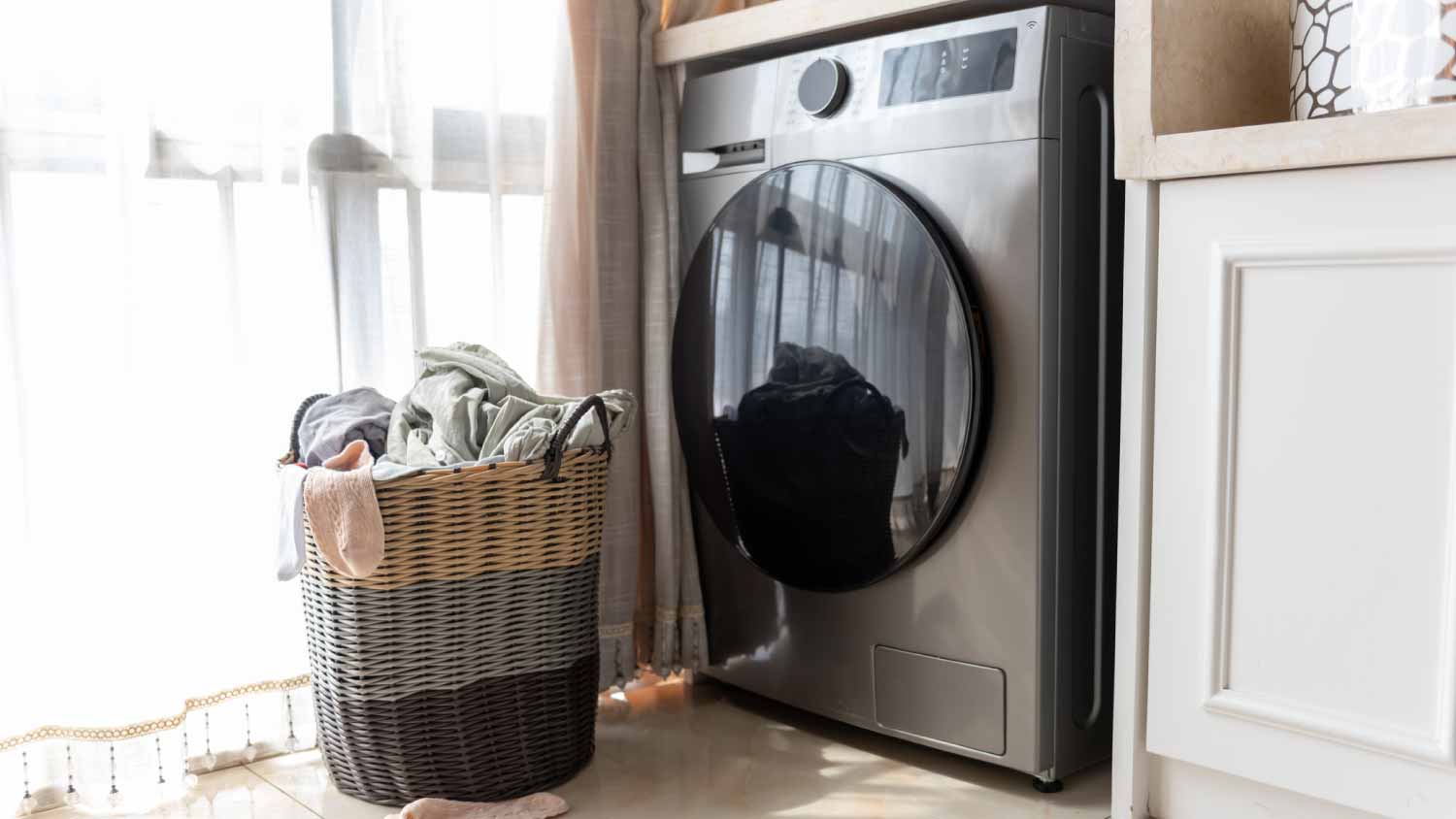Should You Rinse Your Dishes Before Putting Them in the Dishwasher?
Whether you should pre-rinse your dishes before putting them in the dishwasher can depend on what's on your plate and your specific dishwasher


The dishwasher seems to spark more than a few household debates. Housemates and couples often argue over the proper loading method and, even more frequently, if you should pre-rinse your dishes. Whether you always thoroughly rinse dishes before putting them in the dishwasher or you take your plate—food and all—straight from the table to the dishwasher, you may not know for sure which way is right. Well, the answer may not be so cut and dry.
How Dishwashers Work
To decide whether or not you should rinse your dishes before putting them in the dishwasher, it’s important to understand how a dishwasher actually works to get your dishes clean.
Water pumps into your dishwasher from the water line in your sink. The water is then heated inside the dishwasher, and dish detergent releases at the appropriate time in the dishwashing cycle. Then, hot water is sprayed through high-power jets that clean and sanitize your dirty dishes. Often, if you choose the right setting on your machine, the dishwasher will also blow hot air to dry your dishes off once the cleaning cycle is complete.
When Should You Rinse Your Dishes Before Putting Them in the Dishwasher?

Many modern dishwashers have a sensor that determines how dirty your dishes are and how long a wash cycle needs to be to get them clean. And a good dishwashing detergent with enzymes helps to break down food into smaller particles. That means that you can often skip that rinse before you load your plate into the dishwasher—and it might actually work better if you do.
These machines are also often more efficient with water than your kitchen sink, meaning skipping the rinse when it’s not absolutely necessary will help you save on your water bill.
If you just can’t give up the habit of rinsing every dish, don't worry. Fully rinsing the dishes likely won’t hurt anything; it just might not be necessary in every case. A good rule to keep in mind is if there are large pieces of sticky, caked-on food that will be hard to scrape off after they dry, or you ate something like melted chocolate that hardens, a rinse right after use might be a good idea. If there are just a few crumbs or some oil on a dish or pan, it’s not necessary to rinse these before putting them in the dishwasher.
Scraping or rinsing off those particularly large pieces of food can help you avoid a future dishwasher repair, which averages about $140. Too much food can clog the pump assembly and prevent the dishes from getting cleaned properly, so just use your best judgment.
How to Get Cleaner Dishes in Your Dishwasher

If your dishes aren’t getting as clean as you’d like them to be, here are a few ideas you can try, rather than wasting your time pre-rinsing everything, to get your dishes cleaner after every cycle.
1. Switch up your dishwasher detergent: If you’ve determined there’s nothing mechanically wrong with your dishwasher itself, try a new detergent. Sometimes certain models are most compatible with specific types or brands of dishwashing detergent. Check with your manufacturer to see what products they recommend. Or, do a test at home by trying out different brands or different applications such as liquid gel, pods, or tablets and see which gets the job done with your dishwasher.
2. Don’t load the dishwasher too full: If you cram together too many dishes, it can be difficult for the sprayers to cut through the grime effectively. Leave enough space where you don’t have a lot of dishes overlapping each other. And always give the sprayer a spin before you shut the dishwasher to make sure you don’t have any tall dishes blocking the sprayer’s movement.
3. Clean the dishwasher itself regularly: Run a complete cycle on the hottest temperature setting with distilled white vinegar (sans dishes) about once a month to remove lime and hard water buildup as well as mold or mildew from your dishwasher and keep your dishes smelling fresh and clean after a wash. Wipe away any large food particles from the bottom of the dishwasher and empty the filter basket to prevent a clog. You can also deep clean your dishwasher a few times a year to nix bacteria growth before it gets out of control.
4. Replace your dishwasher after eight to 10 years: This range is the average lifespan of a dishwasher, so if your appliance is nearing the end of its life and you notice it’s no longer getting your dishes clean enough, it might be time to go ahead and buy a new dishwasher. The cost of a new dishwasher runs between $400 to $700 on average, with high-end models going up to $2,000. It costs an additional $170 on average to have a professional install the dishwasher in your house.



.jpg?impolicy=leadImage)

- Appliance Repair Companies
- Washing Machine Repair
- Dryer Repair
- Refrigerator Repair
- Dishwasher Repair
- Oven Repair
- Wood & Pellet Stove Repair
- Freezer Repair Services
- Wood Stove Services
- Gas Stove Repair
- Emergency Appliance Repair Companies
- Ice Maker Repair
- Gas Appliance Repair
- GE Appliance Repair
- GE Refrigerator Repair
- GE Dryer Repair
- GE Dishwasher Repair
- GE Washing Machine Repair
- Samsung Appliance Repair
- Samsung Refrigerator Repair
- Samsung Dryer Repair
- Samsung Washer Repair
- Samsung Dishwasher Repair
- Samsung Oven Repair
- Whirlpool Repair
- Whirlpool Refrigerator Repair
- Whirlpool Washer Repair
- Whirlpool Dryer Repair
- Whirlpool Oven Repair
- Maytag Appliance Repair
- Maytag Refrigerator Repair
- Maytag Washer Repair
- Maytag Dryer Repair
- Maytag Dishwasher Repair
- Kitchenaid Appliance Repair
- Kitchenaid Oven Repair
- Kitchenaid Refrigerator Repair
- Kenmore Appliance Repair
- Kenmore Dishwasher Repair
- Kenmore Washer Repair
- Kenmore Dryer Repair
- LG Refrigerator Repair
- Bosch Appliance Repair
- Kenmore Refrigerator Repair
- LG Appliance Repair Services
- GE Microwave Repair
- Electrolux Appliance Repair
- Electrolux Washer Repair
- Kitchenaid Dishwasher Repair Services
- Wood Stove Inspection
- Dishwasher Installation
- Trash Compactor Repair














